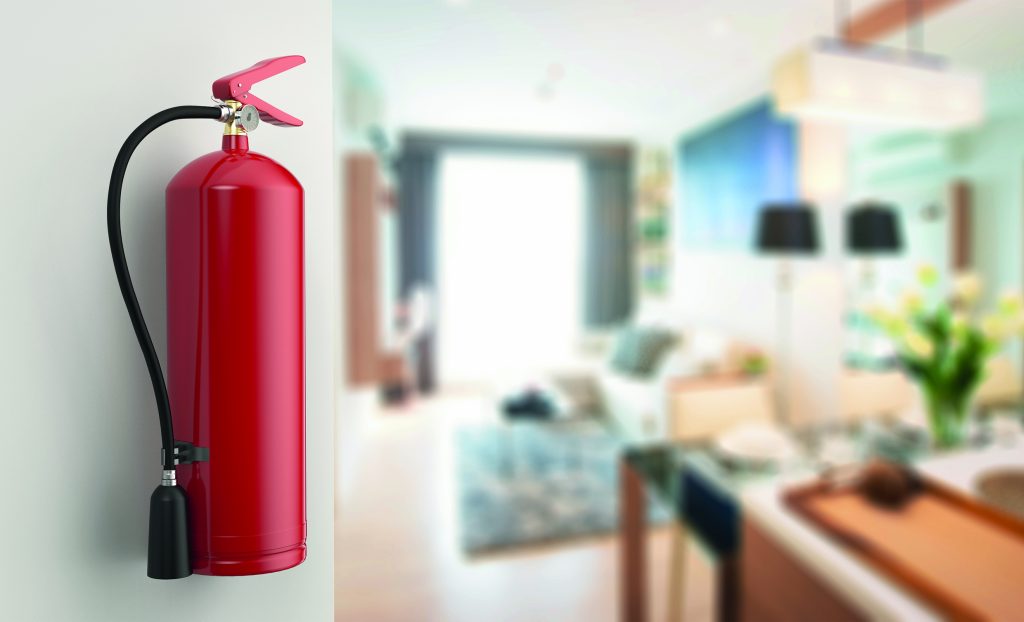From the rugged coast of Cornwall to the snowy landscape of the Highlands, the UK is a wonderful place for a winter holiday. Especially when you can spend a cozy evening in front of an open fire or wood burner. No wonder so-called ‘staycations’ are still the order of the day for many UK holidaymakers.
To meet the demand, the number of Holiday homes in the UK have risen in price by 40%. But the rapid growth has led to several concerns. First among them is fire safety. The fire door inspection scheme says last year stunning 75% of fire doors in the UK have failed an inspection, the majority of which are in rental buildings. Given the rapid growth of holiday rental properties, it is likely that many of these rentals do not meet fire safety standards.
At least one vacation rental landlord was fined for violating fire safety rules. The owner of a self-catering accommodation in Perranporth, Cornwall, has been ordered to pay nearly £4,000 in fines and costs after his premises failed to comply with fire safety regulations. But the fine is not the worst that could happen – summing up the case, the magistrate said: “Potentially people could have died. Fortunately, that didn’t happen.”
Installers and contractors will be one of many groups facing the challenge of bringing this new wave of holiday homes into compliance with fire safety regulations. In particular, electricians will need to ensure that these new landlords’ electrical appliances are compliant and serviceable, which may include removing dangerous appliances or installing fire-fighting equipment such as interconnected smoke alarm systems.
Those familiar with vacation home fire regulations will be better prepared to bring new rentals into compliance, and you can help new landlords and first-time vacation home owners prepare and avoid situations like the one above. Here’s an overview of fire safety regulations for rentals and vacation homes that you may need to consider when working with your next landlord:
Fire safety measures and lighting
All holiday homes should have multi-purpose fire extinguishers and fire blankets. Emergency lighting and fire exit signs should be installed to help people find the exit in the event of an emergency.
Fire and carbon monoxide detectors
At least one smoke alarm must be installed on each floor of the rental property. A carbon monoxide alarm should also be fitted in any room that contains a solid fuel burning appliance such as a coal stove or wood stove. Landlords must test alarms at the start of each tenancy.
From February, all homes in Scotland must also have one interconnected fire alarm system. It is the first nation in the UK to pass this legislation since the Grenfell Tower fire in 2017, and it means that if one alarm goes off, all alarms go off.
Electrical fire and gas safety
Landlords must also ensure that all electrical appliances, circuits and fixed installations in the property are safe. Although not a legal requirement, landlords are also advised to obtain an electrical safety certificate, which provides proof that a qualified electrical engineer has inspected the premises. Insurance may be invalid if this check is not carried out.
In relation to gas, properties using gas for central heating or cooking appliances must hold a valid gas safety certificate. These appliances must be regularly maintained and serviced by a Gas Safe registered engineer.
Fire doors
Fire doors deserve attention as they are often overlooked and many UK fire doors do not pass inspection. They play a vital role in helping to stop the spread of heat and smoke, protecting lives as well as buildings, and are an essential requirement for flats or houses with loft conversions. They are also recommended for the kitchens of all rental properties
What more can you do?
The new landlord market will provide an opportunity for those familiar with products and regulations outside of electrical fire safety. As mentioned above, three quarters of fire doors in the UK do not pass safety checks. So while fire doors may not fall directly into your typical remit, many new landlords and holiday property owners will seek advice when brought in to help with fire regulations.
FireKit by Codelocks it could be your foot in the door. Codelocks’ FireKit fits the door lock and adds extra protection by ensuring that smoke and fire cannot pass through the lock’s mounting slots.
Connected
Winter breaks in the UK mean fire safety is as critical as ever









